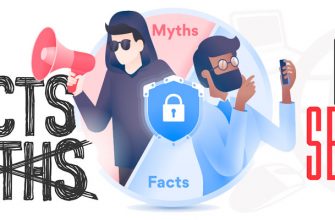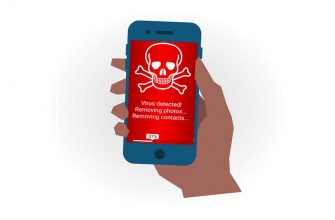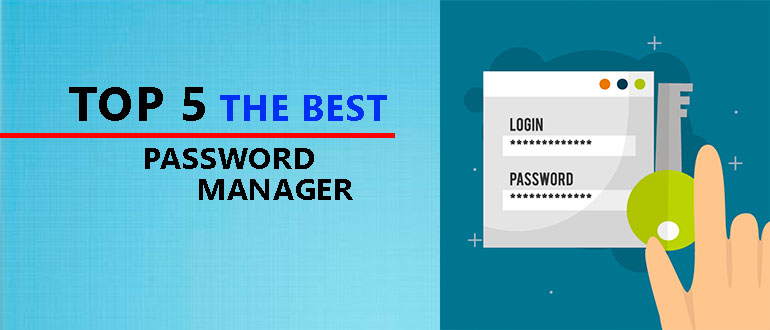The digital world faces an ever-growing array of cyber threats, from sophisticated ransomware attacks to data breaches that expose millions of users. But there’s a special breed of professionals who stand as the first line of defense – ethical hackers. These cybersecurity experts use the same tools and techniques as malicious hackers, but with one crucial difference: they’re the good guys.
Take Marcus Hutchins, who stopped the devastating WannaCry ransomware attack in 2017. At just 22, he found the kill switch that saved countless organizations worldwide. Stories like his highlight why ethical hacking isn’t just another tech job – it’s a career that makes a real difference in protecting our digital infrastructure.
The demand for these skills has never been higher. With cybercrime damages predicted to hit $10.5 trillion annually by 2025, organizations are desperately seeking skilled ethical hackers. Entry-level positions often start at $70,000, while experienced professionals can earn well over $150,000 annually.
Whether you’re a college student fascinated by cybersecurity, an IT professional looking to pivot, or someone intrigued by the challenge of outsmarting cybercriminals, the path to becoming an ethical hacker is more accessible than you might think.
This guide will walk you through every step – from essential skills and certifications to practical experience and career opportunities. Let’s explore how you can join this elite group of digital defenders who make the internet a safer place for everyone.
Educational Requirements
While traditional paths to ethical hacking often start with a computer science degree, the field has evolved to accommodate diverse educational backgrounds. A four-year degree in cybersecurity, information technology, or computer science provides a solid foundation, but it’s not the only route. Many successful ethical hackers have emerged from two-year programs or even self-taught backgrounds, proving that practical skills often matter more than formal education.
Certifications, however, are non-negotiable in this field. The Certified Ethical Hacker (CEH) credential, while expensive at around $1,200, serves as an industry standard and opens doors to entry-level positions.
For those seeking to demonstrate advanced skills, the Offensive Security Certified Professional (OSCP) certification is particularly valued for its hands-on approach and grueling 24-hour practical exam. CompTIA Security+ offers a more affordable starting point at $370 and covers essential security concepts.
Self-taught ethical hackers can build credibility through alternative means. Platforms like TryHackMe and HackTheBox offer structured learning paths that teach practical skills while providing certificates of completion. Contributing to open-source security tools, documenting vulnerability discoveries, and maintaining a technical blog can demonstrate expertise just as effectively as formal credentials.
The key is to focus on practical application rather than just theoretical knowledge. Whether through formal education or self-study, successful ethical hackers continuously update their skills through hands-on practice. Many renowned professionals in the field, like Kevin Mitnick, began with intense curiosity and self-directed learning before acquiring formal certifications. The field rewards those who can demonstrate real-world skills, regardless of how they acquired them.
Technical Skills Required
The foundation of ethical hacking rests on mastering a core set of technical skills that serve as your digital toolkit. Python stands out as the essential programming language, used for everything from automating security tests to developing custom exploitation tools. While you don’t need to be a software developer, understanding basic scripting in Python, along with some knowledge of C++ for low-level system interactions, will significantly enhance your capabilities.
Networking fundamentals form another crucial pillar. You’ll need to understand how packets travel across networks, how protocols like TCP/IP function, and how to manipulate network traffic. This knowledge becomes practical when using tools like Wireshark to analyze network behavior or when identifying potential entry points in a target system.
Linux expertise, particularly with security-focused distributions like Kali Linux, is non-negotiable. Most ethical hacking tools run natively on Linux, and you’ll spend countless hours working in terminal environments. Understanding Linux file systems, permissions, and command-line operations becomes second nature in this field.
Real-world application might involve using Metasploit to probe for vulnerabilities while simultaneously monitoring system responses with various command-line tools.
The security toolkit itself requires proficiency with industry-standard software. Burp Suite serves as your web application testing companion, revealing potential SQL injections or cross-site scripting vulnerabilities. Nmap helps map network architectures, while John the Ripper and Hashcat assist in password cracking exercises. Each tool requires not just operational knowledge, but understanding of when and why to deploy them – a skilled ethical hacker knows that sometimes a simple netcat connection provides more insight than a sophisticated exploitation framework.
Database management and web technologies round out the technical requirements. SQL knowledge helps identify injection vulnerabilities, while understanding web technologies like JavaScript, PHP, and modern frameworks helps you spot potential weaknesses in web applications. Many successful compromises come from chaining multiple vulnerabilities together, requiring a holistic understanding of how different technologies interact.
Legal and Ethical Considerations
The line between ethical hacking and cybercrime is drawn by legal authorization and clear boundaries. The Computer Fraud and Abuse Act serves as the primary legislation in the United States, with similar laws existing worldwide. Breaking these laws, even unintentionally, can result in severe consequences – including hefty fines and potential imprisonment. This isn’t meant to scare you, but to emphasize why proper documentation and authorization are fundamental to ethical hacking.
Before starting any security assessment, you need explicit written permission from the system owner. This typically comes in the form of a scope document that outlines exactly what you can and cannot do. For instance, while testing a company’s web application, you might have permission to probe for SQL injections but be prohibited from conducting denial-of-service attacks. Think of it like having a locksmith’s license – you have permission to pick locks, but only specific ones under specific circumstances.
Non-disclosure agreements protect both you and your clients. When you discover vulnerabilities, you can’t simply post them on Twitter or share them with colleagues. Professional ethical hackers follow responsible disclosure procedures, giving organizations time to patch vulnerabilities before they become public knowledge. Companies like Google and Microsoft maintain vulnerability disclosure programs with clear guidelines on how to report findings.
Professional conduct extends beyond legal requirements. If you discover a vulnerability that’s out of scope but potentially dangerous, you can’t exploit it – but you should report it.
Many ethical hackers maintain personal guidelines that go beyond legal minimums, such as refusing to work on projects that could harm individuals’ privacy or security. When in doubt, the question isn’t just “Is this legal?” but “Is this right?”
The consequences of ethical lapses can be severe. Even a well-intentioned probe of a system without proper authorization can end a career. Just ask the numerous security researchers who faced legal troubles despite believing they were helping. Success in this field requires not just technical skill, but impeccable professional judgment and unwavering ethical standards.
Practical Experience
Building practical experience starts with creating your own hacking laboratory. Set up a dedicated computer with virtualization software like VirtualBox, then install Kali Linux as your attack platform and vulnerable systems like Metasploitable or DVWA as your targets. This controlled environment lets you experiment safely while learning how different attacks work in practice.
Online platforms offer structured paths for gaining hands-on experience. HackTheBox provides realistic scenarios where you can legally hack into purposefully vulnerable machines. Start with their “Starting Point” machines, which guide you through basic exploitation techniques. TryHackMe offers more beginner-friendly rooms, complete with detailed walkthrough options when you get stuck. Completing these challenges builds both skills and confidence.
Bug bounty programs represent your first step into real-world hacking. Platforms like HackerOne and Bugcrowd connect you with companies willing to pay for discovered vulnerabilities. Start with easier targets and focus on a specific type of vulnerability, like XSS or IDOR. Your first valid submission might take months, but that process teaches you more than any course could. Even a small bug report adds credibility to your portfolio and provides valuable experience in writing professional security reports.
Capture The Flag (CTF) competitions sharpen your skills while connecting you with the hacking community. Start with beginner-friendly events like PicoCTF or CTFtime’s easier challenges. These competitions simulate real-world scenarios under time pressure, forcing you to think creatively and apply your knowledge in new ways.
Many successful ethical hackers credit CTFs with developing their problem-solving abilities and teaching them to approach security challenges systematically.
Join online communities where ethical hackers share knowledge. Reddit’s r/netsec and various Discord servers host discussions about new vulnerabilities and techniques. Consider documenting your learning journey through a blog or YouTube channel – teaching others solidifies your understanding and builds your reputation in the community. Remember that every experienced hacker started as a beginner, and most are willing to help those who demonstrate genuine interest and effort.
Career Paths
Most ethical hacking careers begin in entry-level security positions, typically as a Security Analyst or Junior Penetration Tester. Starting salaries range from $60,000 to $80,000, with responsibilities focused on vulnerability scanning and basic security assessments. Within two years, those who excel often advance to full Penetration Tester roles, where salaries jump to $90,000-$120,000 and work involves conducting comprehensive security audits.
Specialized roles emerge as you gain experience. Red Team Operators, who simulate advanced persistent threats against organizations, often command salaries exceeding $150,000. Security Researchers, focusing on discovering new vulnerabilities in systems and applications, can earn similar amounts while enjoying more autonomous work.
The most successful independent consultants and bug bounty hunters can earn over $200,000 annually, though income can be less predictable.
Consider Sarah Chen’s journey: she started as a network administrator, transitioned to security analysis after earning her CEH, and now leads red team operations at a Fortune 500 company. Or take Marcus Rodriguez, who began participating in bug bounty programs while in college and now runs his own security consulting firm, earning multiple six figures by specializing in cloud infrastructure security.
Corporate paths offer stability and structured advancement. Large tech companies typically provide clear career progression from Junior Penetration Tester to Senior Security Engineer, then to roles like Security Architect or Director of Security. Each step brings increased responsibility and compensation, with senior positions often exceeding $200,000 in total compensation.
Independent consulting represents an alternative path offering flexibility and potentially higher earnings. Successful consultants often specialize in specific industries or technologies – healthcare security compliance, IoT device testing, or blockchain security. Building a consulting practice requires strong technical skills plus business acumen, but offers the freedom to choose projects and set your own rates, typically ranging from $150 to $500 per hour depending on expertise and reputation.
Industry Best Practices
Professional ethical hacking follows established methodologies that ensure thorough and reliable security assessments. The OWASP Testing Guide serves as the foundation for web application security testing, while NIST guidelines provide frameworks for network security assessments. These methodologies aren’t just checkboxes – they’re battle-tested approaches that help you systematically uncover vulnerabilities while maintaining professional standards.
Documentation separates professionals from amateurs. Every test, finding, and attempted exploit must be meticulously recorded. A typical penetration testing report includes executive summaries for management, detailed technical findings for IT teams, and clear remediation steps.
Screenshots, network logs, and proof-of-concept code should be preserved to validate findings and assist with remediation. Professional reports often follow templates from organizations like PTES (Penetration Testing Execution Standard) to ensure consistency and completeness.
Client communication requires a delicate balance of technical accuracy and business relevance. When presenting findings, focus on impact rather than technical details alone. Instead of simply reporting an SQL injection vulnerability, explain how it could lead to customer data theft and potential regulatory fines. Build relationships with IT teams by offering practical, prioritized remediation advice rather than just pointing out problems.
Staying current with emerging threats and security trends is non-negotiable. Subscribe to security advisory feeds from major vendors, follow respected security researchers on social media, and regularly read security blogs and forums. Allocate at least 5-10 hours weekly for research and learning. Many leading ethical hackers maintain private labs where they can safely experiment with new attack techniques and tools.
Professional networking plays a crucial role in long-term success. Attend security conferences like DefCon or BlackHat when possible, participate in local security meetups, and engage with online communities. Share your knowledge through blog posts or conference talks, but never disclose client information or unpatched vulnerabilities. Building a strong professional network not only provides learning opportunities but often leads to job opportunities and collaboration on complex security challenges.
Getting Started Guide
Your first three months should focus on building foundational knowledge. Start by installing Kali Linux on a virtual machine and learning basic Linux commands. Dedicate two hours daily to Python programming through free resources like Codecademy or Python.org. Budget around $400 for your initial CompTIA Security+ certification study materials and exam fee.
Months four through six are about hands-on practice. Subscribe to TryHackMe ($10/month) and complete their beginner pathways. Set up your home lab with VirtualBox (free) and download purposefully vulnerable machines like Metasploitable. Start following established security researchers on Twitter and join r/netsec on Reddit to stay current with security trends. Common mistake to avoid: don’t jump into advanced tools before mastering basics.
During months seven through nine, deepen your technical expertise. Move to more challenging platforms like HackTheBox ($14/month for VIP access). Begin studying for the Certified Ethical Hacker certification, budgeting around $1,200 for the exam and materials. Start documenting your learning journey through a blog or GitHub repository. Crucial tip: never test your skills on live systems without explicit permission.
The final quarter of your first year should focus on professional development. Join local cybersecurity meetups through platforms like Meetup.com. Create profiles on bug bounty platforms like HackerOne and start with their easier programs. Connect with mentors through LinkedIn or security forums – many experienced professionals are willing to guide newcomers who demonstrate dedication.
Essential resources for your journey:
- Learning platforms: TryHackMe, HackTheBox, VulnHub
- Communities: Discord servers (InfoSec Prep, NetSec Focus), Stack Overflow
- Books: “The Web Application Hacker’s Handbook,” “Red Team Field Manual”
- Tools: Burp Suite Community Edition, Metasploit Framework, Wireshark
- YouTube channels: IppSec, John Hammond, LiveOverflow
Remember to pace yourself and celebrate small victories. The field of ethical hacking rewards persistence over speed. Focus on understanding concepts deeply rather than rushing through tutorials. Most importantly, maintain high ethical standards from day one – your reputation will become your most valuable asset.













